Tag: Dementia Care
Articles dealing with caregiver tips for patients with various types of dementia.
Articles dealing with caregiver tips for patients with various types of dementia.

Understanding Dementia with Lewy Bodies (DLB) and Parkinson's disease (PD) is crucial for providing the best care. This guide helps families know what to expect and how to support their loved ones through these challenging conditions.

Navigate the challenges of Korsakoff Dementia with our comprehensive guide. Learn to recognize symptoms, understand stages, and provide compassionate care for your loved one.
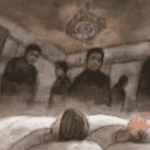
Explore comprehensive approaches to managing hallucinations in loved ones with dementia. This article covers pharmacological methods, focusing on Seroquel and non-drug strategies such as Naomi Feil's validation therapy. Learn how to validate feelings, de-escalate fear, and improve the quality of life for those experiencing cognitive impairment.

Dementia is a complex condition affecting millions worldwide. Diagnosing dementia requires the expertise of medical professionals specializing in cognitive disorders. By guiding families and caregivers through the diagnostic process, you can empower them. In this article, we'll explore the steps to find the right specialist for a dementia diagnosis and how families can prepare for the crucial doctor visit.
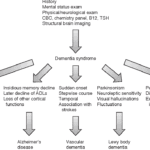
Getting a formal diagnosis of dementia is essential for understanding the condition, accessing appropriate treatments and support services, and ensuring the best possible care. This comprehensive guide explores the importance of a specific diagnosis in predicting patient needs for comfort and quality of life, as different types of dementia require distinct care approaches. Avoid the risks of a generic diagnosis and empower yourself with knowledge.

Caregivers can find it challenging to ensure dementia patients wear their CPAPs overnight. This article offers practical tips and strategies to help caregivers ensure comfortable and uninterrupted CPAP use for their loved ones.
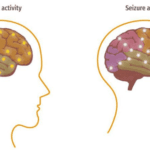
This article delves into the intricate relationship between dementia and seizures, offering insights on identification, safety protocols, and advocacy for caregivers.
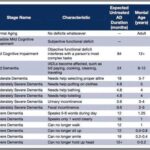
As a nurse who has cared for many terminally ill individuals with Alzheimer's disease over the years, I understand the importance of accurately assessing their functional decline using the Functional Assessment Staging Tool (FAST). The FAST scale provides valuable information about the progression of Alzheimer's disease and helps guide appropriate care planning for patients and their families. In this guide, I will walk you through the process of assessing patients on the FAST scale, starting from stage 1 and discussing when to stop reading the scale for determination. I will also provide three examples of patients at various stages of the FAST scale.
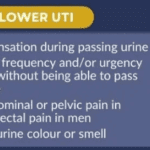
This comprehensive guide helps caregivers understand why urinary tract infections (UTIs) are prevalent in dementia patients. It provides practical advice on prevention, early detection, and effective treatment strategies. Empower yourself with the knowledge to provide the best care for your loved ones.

Exploring Hospice Eligibility Criteria for Alzheimer's, Vascular, Lewy Body, Frontotemporal and other Dementias: Empowering Hospice Nurses to Provide Compassionate End-of-Life Care
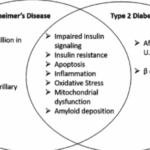
Type Three Diabetes (T3D) may hold clues to dementia. Explore the role of insulin resistance, the APOE4 gene, and personalized treatments.

This guide delves into Logopenic Primary Progressive Aphasia, a unique form of dementia. It provides crucial insights for family members and caregivers, helping them understand the condition and provide adequate care.
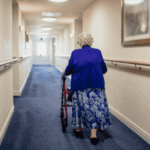
Deciding on a dementia care facility is crucial. This guide compares personal care homes, assisted living, memory care units, and nursing facilities, detailing Medicaid eligibility, pros and cons, and essential questions to ensure the best care for your family member.

Uncover the importance of regular care plan meetings at healthcare facilities. This guide details participants, goals, benefits, and risks of non-participation.

Discover the essentials of Mild Cognitive Impairment (MCI) with our guide. Understand the signs, diagnosis, and ways to support loved ones facing the risk of dementia. This article provides valuable insights for patients, families, and caregivers to navigate the journey confidently.
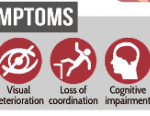
Facing Creutzfeldt-Jakob Disease (CJD) can be overwhelming, but with the right information and compassionate care, you can navigate this journey with your loved one. This guide is designed to help families new to CJD understand what to expect, recognize changes in their loved one, and provide the best care from onset

Discover how Lion’s Mane, Magnesium Glycinate, Vitamins D3, K2, B1, Folate, C, and MTC Oil can play a role in dementia care. This article delves into the latest research and expert insights on natural supplements that support cognitive function and overall brain health.

Explore the use of ashwagandha and CBD to ease anxiety in dementia patients. Learn about dosages, safety precautions, and real-life stories.
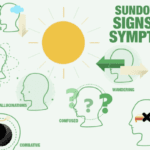
Sundowning, or "late-day confusion," is a challenging experience for individuals with dementia and their caregivers. This phenomenon, occurring in the late afternoon or evening, brings about increased confusion, anxiety, and agitation. Caregivers need to comprehend sundowning and offer compassionate care to ensure the well-being of their loved ones. This article delves into effective pharmacological and non-pharmacological strategies to manage sundowning and create a safe environment.
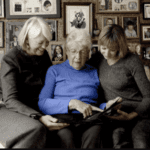
Navigating the challenges of caring for an elderly parent with dementia can be tough, especially when they resist help. This guide offers practical advice and compassionate strategies to support your loved one while respecting their autonomy and dignity.

Discover the potential side effects of dementia medications and how to support your loved one. Stay informed!
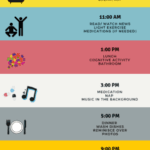
Maintaining routines and consistency can significantly improve the overall well-being and quality of life of a loved one with dementia. As a caregiver, understanding the value of routines and how they can positively impact your loved one's journey through dementia is crucial. In this article, we'll explore why routines matter, how to establish them, and their benefits to patients and caregivers.

Discover gentle methods to encourage dementia patients to bathe. Learn how to create a positive bathing experience, use distraction techniques, and maintain a consistent routine. These compassionate approaches help caregivers navigate hygiene challenges while preserving dignity and reducing stress for both patient and caregiver.

Welcome to our discussion on a topic close to many hearts: the care of our loved ones with dementia. When a family member is diagnosed with dementia, it feels like a part of them slowly fades away. But as they lose parts of themselves, your role in their life becomes even more crucial. This article isn’t just words on a page; it’s a beacon of hope and understanding, shining a light on why your voice, as a family member, is vital in the care of your loved one.